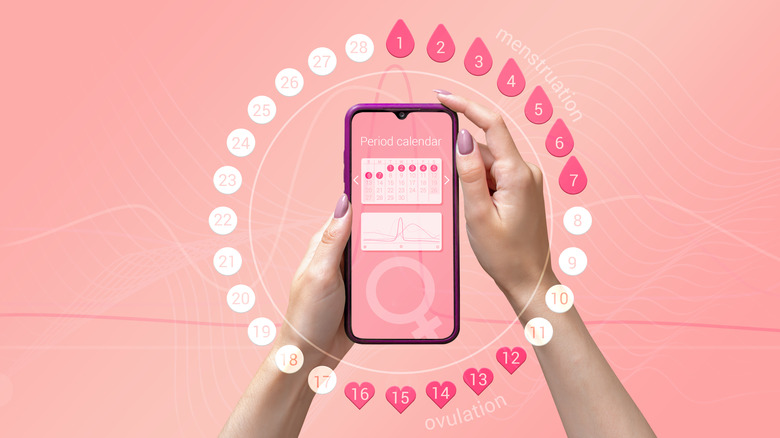The Syncing Myth About Your Period You Should Stop Believing
Ever spent a few days with your bestie and started your period at suspiciously similar times? You share your tampon supply and agree that you're periods must have synced up. At some point, we've all heard the theory that women release hormones that can cause each other's menstrual schedules to match up. But does anyone really know what this is based on?
According to Healthline, scientists first began investigating menstrual syncing with a 1971 study published by Harvard. Researcher Martha McClintock monitored 135 female college students living in the same dorm and concluded that their menstrual phases followed the same schedule over time. Since this point, Healthline reports that menstrual syncing has been referred to as "the McClintock effect." However, the source also writes that the study failed to consider various essential factors. Since this preliminary study, little evidence has supported its validity, and multiple studies have countered its conclusions.
How the menstrual syncing myth was disproven
According to scientists today, the "McClintock effect" no longer holds scientific viability. In a similar study by Human Nature, researchers observed the menstrual cycles of 186 female participants living together in a dorm for an entire year. The results showed that their menstrual phases did not synchronize. Researchers with Human Nature concluded that McClintock's experiment corresponded with the statistical likelihood of chance, making the outcome a random coincidence.
A much larger study conducted by the menstrual tracking app company Clue in partnership with Oxford concluded that it's more probable for women's menstrual cycles to differentiate after long durations together rather than align. OB/GYN Dr. Stacie Jhaveri reiterates these findings to Cleveland Clinic, saying, "for healthy people living together, proximity doesn't change cycle timing or frequency ... periods just don't work that way." Despite all of this, you are not by any means alone for having believed this myth.
Where did period syncing come from in the first place?
The old wives' tale about menstrual syncing is a fairly common misconception. In 1999, a study published by the Journal of Reproductive and Infant Psychology showed that 84% of participants had heard about menstrual cycle syncing, and 70% said they'd experienced it themselves. If you swear by having experienced this as well, we believe you. But science just doesn't back up the idea that it has anything to do with your proximity to other menstruating women.
A review published by the journal Human Reproduction explained that overlap is common between women's menstruation periods because of arbitrary timing. Two women differ in their menstrual start date by seven days on average. Because the mean bleeding period lasts 5-7 days, there is a big possibility your period will concur with the people around you. Your period can come early or late for a variety of reasons pertaining to diet, exercise, stress levels, illness, and use of birth control (per Cleveland Clinic). So, while it's kind of sweet to think you're bonded to your friends physically through menstruation syncing, it's more just a matter of chance.


